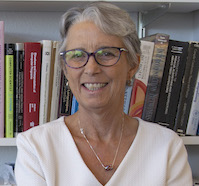In July 2020, Jason Stoughton's "The Pulse of AI" podcast series featured five episodes focusing on various topics on AI and Evolutionary Computation. Each podcast is a discussion with an expert on the topic, as well as Babak Hodjat or Risto Miikkulainen from the Evolutionary AI team. Many interesting ideas came out! Some of the topics are listed below; click on the image or title to listen to the podcast.
Demystifying AI, with Jordan Pollack and Babak Hodjat
Jordan Pollack is a Professor of Computer Science at Brandeis University; Babak Hodjat is VP of Evolutionary AI at Cognizant. Questions for discussion: There is a lot of confusion out there on AI. What is AI after all? Is everyone working on the same AI, just making it better? What is the difference between Machine Learning, Deep Learning, and AI? Can there be a one-size-fits-all AI system we can all use for different applications? What would a fully AI-enabled business look like? Is there a distinction between the ultimate goal of AI scientists and human intelligence? Can AI systems show emotions? How useful are emotions for an AI system? Will AI take over the world? What is this singularity? Should businesses adopting AI systems worry about it now?
Trustworthiness in AI, with Joydeep Ghosh and Risto Miikkulainen
Joydeep Ghosh is a Professor of Electrical and Computer Engineering at the University of Texas at Austin and Chief Scientist at CognitiveScale; Risto Miikkulainen is a Professor of Computer Science at the University of Texas at Austin and AVP of Evolutionary AI at Cognizant. Questions for discussion: Trustworthiness is a major risk and impediment to adoption of AI systems. Can you tell us what it is and give us some examples of how AI systems have breached our trust in the real world? Can we measure trustworthiness? What are some ways we can make AI system’s more trustworthy? How can an AI system explain what it is doing, e.g. in terms of rules? Can an AI system tell us how much we should trust it on the different predictions that it makes? Should trustworthiness be regulated/mandated? Ultimately, the question of trust leads to the question of responsibility. Where do you think responsibility lies for the actions of AI systems? Do we need that level of trust in practical business applications?
AutoML and the Future of AI, with Quoc Le and Risto Miikkulainen
Quoc V. Le is a research Scientist at Google Brain; Risto Miikkulainen is a Professor of Computer Science at the University of Texas at Austin and AVP of Evolutionary AI at Cognizant. What is AutoML and why is it important? Are there different techniques for AutoML? How do they differ, both technically and in terms of applications? What is the future of this technology, in terms of new approaches, new applications? Why should businesses care about this technology? Are there instances of AutoML being used in businesses today? How much autonomy can we expect in our AI that creates AI for us? What are the benefits, and what are the risks?
Creativity and Open-endedness in AI, with Ken Stanley and Babak Hodjat
Kenneth O. Stanley is a Group Leader at OpenAI; Babak Hodjat is VP of Evolutionary AI at Cognizant. Questions for discussion: What is creativity in AI and why is it important? What is the state of creativity in current AI systems? What is the idea behind Novelty Search? What is the idea behind open-ended evolution? What do you think we can do with these techniques? Have any of them been used in business applications? Where do you see them as most useful? Can you foresee a future in which open-ended evolution helps solve problems in the real world and has real business implications?
Biological and Computational Evolution with Stephanie Forrest and Risto Miikkulainen
Stephanie Forrest is a Professor of Computer Science at Arizona State University; Risto Miikkulainen is a Professor of Computer Science at the University of Texas at Austin and AVP of Evolutionary AI at Cognizant. Questions for discussion: How did Evolutionary Algorithms come about and how do they work? While AI is inspired by human and biological intelligence, there are fundamental differences. What are some of the differences between evolution in nature and in Evolutionary AI? Are there interesting computational properties that biological evolution has that we have not yet seen in Evolutionary AI systems? How can such systems be used in business settings? What impact will they will have? It feels like there is a lot of interdisciplinary inspiration that goes into inventing AI systems. How can we help promote such opportunities?




